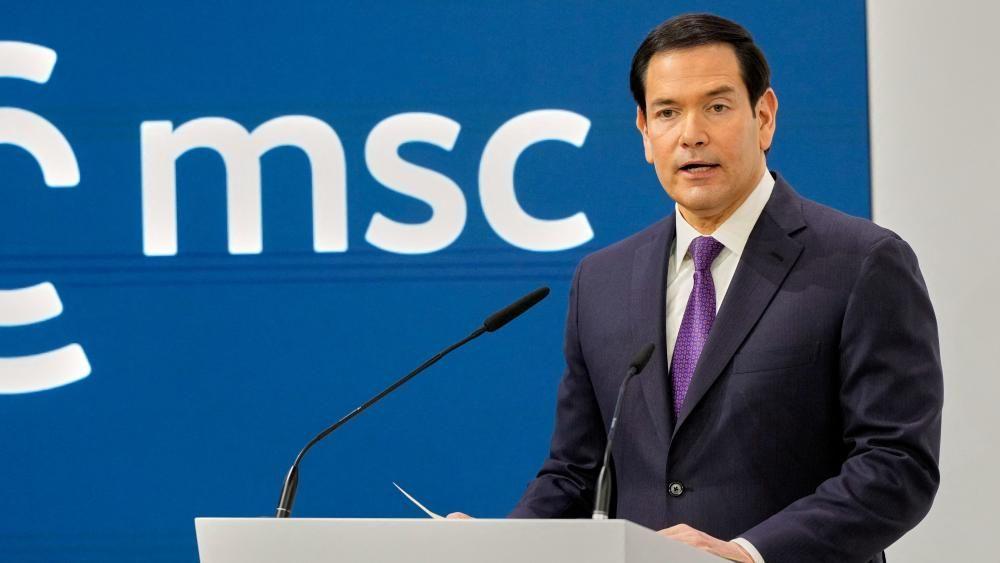Trump's Tomahawk Missile Threat to Ukraine Sparks Fury in Moscow

The potential supply of long-range Tomahawk cruise missiles to Ukraine by the United States is currently under consideration by President Donald Trump, who has characterized such a move as "a new step of aggression" in the ongoing conflict with Russia. Speaking to reporters aboard Air Force One as he flew to Israel, Trump indicated a willingness to potentially send these powerful weapons, stating, "we'll see... I may," following a second phone call with Ukrainian President Volodymyr Zelenskyy over the weekend.
President Zelenskyy has persistently advocated for enhanced military capabilities, including long-range arms, to empower Ukraine in launching effective counter-attacks against Russian forces. Kyiv has made numerous appeals for precision-strike weapons that could reach targets deep within Russian territory, far from the front lines of the protracted conflict. Discussions between the two leaders have focused on strengthening Ukraine's air defense, overall resilience, and long-range offensive capacities, alongside specific details related to the energy sector.
The Tomahawk missiles, known for their formidable range of 2,500 kilometers (1,500 miles), would significantly extend Ukraine's operational reach, potentially bringing key Russian cities, including Moscow, within striking distance. Trump's rhetoric, questioning whether Russia "want Tomahawks going in their direction," underscores the provocative nature of this potential decision. He also suggested the possibility of discussing the matter directly with Russia if the war remains unsettled, stating, "I might tell them [Russia] that if the war is not settled, that we may very well, we may not, but we may do it."
Moscow has vehemently opposed the prospect of long-range missile supplies to Kyiv. Kremlin spokesperson Dmitry Peskov previously warned that such an action would precipitate a "major escalation" in the conflict and severely strain US-Russian relations. While Peskov had initially downplayed the impact, stating that Tomahawks "won't be able to change the dynamic" of the war, the Kremlin later expressed "extreme concern" over the topic, highlighting escalating tensions and a "very dramatic moment."
The discussion around Tomahawks unfolds amidst Russia's continued aerial bombardments against Ukrainian cities, particularly targeting critical energy infrastructure with drones, missiles, and glide bombs, leading to widespread power cuts. Zelenskyy has condemned these attacks as "aerial terror" and called for stricter secondary sanctions against buyers of Russian oil, who he argues finance the war. Meanwhile, Ukraine has reported gains in its counteroffensive in the southern Zaporizhzhia region and the focal point of Donetsk.
Despite the seriousness of the threat, some allies, such as Belarusian President Alexander Lukashenko, have expressed skepticism, suggesting that Trump's pronouncements might be a forceful tactic rather than an immediate prelude to deployment. Lukashenko advised caution, stating, "Our friend Donald... sometimes he takes a more forceful approach, and then, his tactic is to let go a little and step back. Therefore, we shouldn't take this literally, as if it's going to fly tomorrow." Nevertheless, Ukraine continues to engage with US officials, pursuing the provision of various long-range precision-strike weapons, including Tomahawks and additional ATACMS tactical ballistic missiles, with a senior Ukrainian delegation expected to visit the US.
You may also like...
When Sacred Calendars Align: What a Rare Religious Overlap Can Teach Us

As Lent, Ramadan, and the Lunar calendar converge in February 2026, this short piece explores religious tolerance, commu...
Arsenal Under Fire: Arteta Defiantly Rejects 'Bottlers' Label Amid Title Race Nerves!

Mikel Arteta vehemently denies accusations of Arsenal being "bottlers" following a stumble against Wolves, which handed ...
Sensational Transfer Buzz: Casemiro Linked with Messi or Ronaldo Reunion Post-Man Utd Exit!

The latest transfer window sees major shifts as Manchester United's Casemiro draws interest from Inter Miami and Al Nass...
WBD Deal Heats Up: Netflix Co-CEO Fights for Takeover Amid DOJ Approval Claims!

Netflix co-CEO Ted Sarandos is vigorously advocating for the company's $83 billion acquisition of Warner Bros. Discovery...
KPop Demon Hunters' Stars and Songwriters Celebrate Lunar New Year Success!

Brooks Brothers and Gold House celebrated Lunar New Year with a celebrity-filled dinner in Beverly Hills, featuring rema...
Life-Saving Breakthrough: New US-Backed HIV Injection to Reach Thousands in Zimbabwe

The United States is backing a new twice-yearly HIV prevention injection, lenacapavir (LEN), for 271,000 people in Zimba...
OpenAI's Moral Crossroads: Nearly Tipped Off Police About School Shooter Threat Months Ago
ChatGPT-maker OpenAI disclosed it had identified Jesse Van Rootselaar's account for violent activities last year, prior ...
MTN Nigeria's Market Soars: Stock Hits Record High Post $6.2B Deal

MTN Nigeria's shares surged to a record high following MTN Group's $6.2 billion acquisition of IHS Towers. This strategi...





